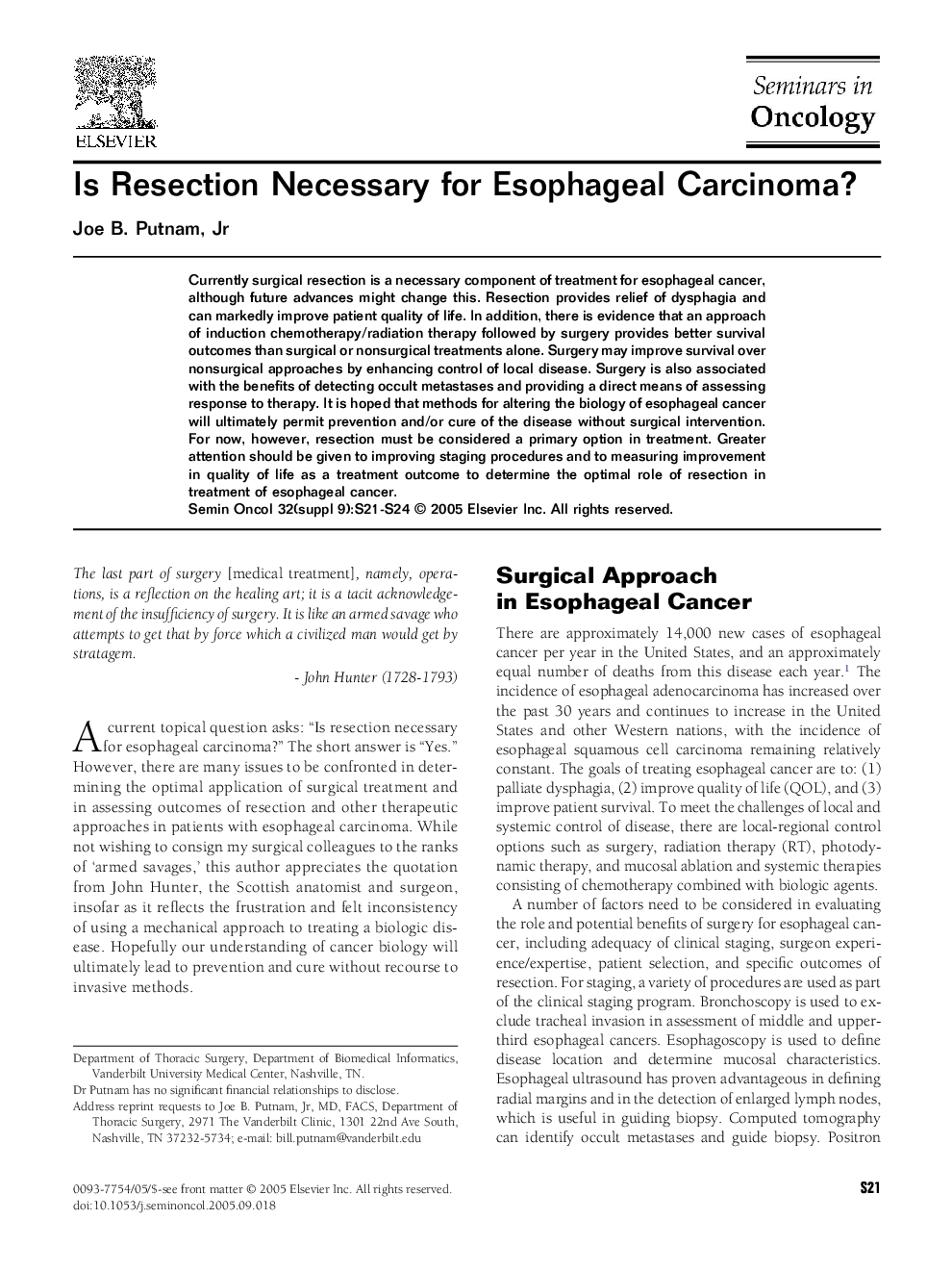| Article ID | Journal | Published Year | Pages | File Type |
|---|---|---|---|---|
| 10924859 | Seminars in Oncology | 2005 | 4 Pages |
Abstract
Currently surgical resection is a necessary component of treatment for esophageal cancer, although future advances might change this. Resection provides relief of dysphagia and can markedly improve patient quality of life. In addition, there is evidence that an approach of induction chemotherapy/radiation therapy followed by surgery provides better survival outcomes than surgical or nonsurgical treatments alone. Surgery may improve survival over nonsurgical approaches by enhancing control of local disease. Surgery is also associated with the benefits of detecting occult metastases and providing a direct means of assessing response to therapy. It is hoped that methods for altering the biology of esophageal cancer will ultimately permit prevention and/or cure of the disease without surgical intervention. For now, however, resection must be considered a primary option in treatment. Greater attention should be given to improving staging procedures and to measuring improvement in quality of life as a treatment outcome to determine the optimal role of resection in treatment of esophageal cancer.
Related Topics
Life Sciences
Biochemistry, Genetics and Molecular Biology
Cancer Research
Authors
Joe B. Jr,
